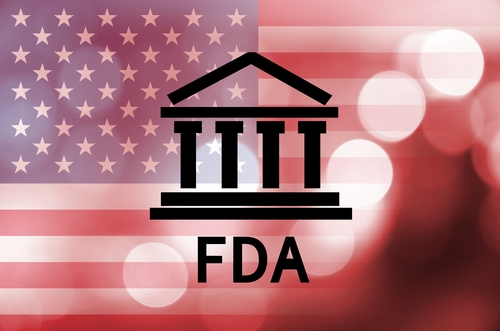Insmed’s brensocatib has been granted breakthrough therapy designation by the U.S. Food and Drug Administration (FDA) for the treatment of adults with non-cystic fibrosis bronchiectasis.
The designation is given to investigational compounds with early evidence of therapeutic potential on at least one clinically significant goal over existing therapies for serious or life-threatening conditions. It is meant to expedite clinical development, regulatory review, and entry into the market, pending approval. Among other benefits are more frequent communication and meetings with the FDA, as well as eligibility for priority review.
“We are very pleased that the FDA has granted breakthrough therapy designation to brensocatib for treating patients with NCFBE [non-cystic fibrosis bronchiectasis], recognizing the strength of data from our Phase 2 WILLOW study and the potential for brensocatib to offer a novel, first-in-class treatment approach to bronchiectasis,” Martina Flammer, MD, Insmed’s chief medical officer, said in a press release.
The company expects to initiate a Phase 3 clinical program for brensocatib as a bronchiectasis treatment in the second half of the year.
“There are currently no approved therapies specifically targeting this severe and chronic pulmonary disease in the United States, Europe, or Japan,” Flammer said. “We look forward to continuing to work with the FDA as we advance the development of brensocatib to address this urgent medical need.”
Brensocatib, an oral small molecule formerly known as INS1007, was initially developed by AstraZeneca and then licensed to Insmed in 2016. The therapy works by blocking dipeptidyl peptidase 1 (DPP1), an enzyme involved in the activity of neutrophils, a type of immune cell that plays a central role in bronchiectasis and other inflammatory lung diseases.
By suppressing DPP1’s activity, brensocatib is intended to ease neutrophil-associated lung inflammation and tissue damage, ultimately reducing bronchiectasis exacerbations.
Breakthrough therapy designation was based on positive data from the global WILLOW trial (NCT03218917), which evaluated brensocatib’s safety and effectiveness in 256 adults with non-cystic fibrosis bronchiectasis.
Participants, who had at least two documented bronchiectasis exacerbations in the previous year, were randomly assigned to receive once-a-day oral tablets of 10 mg or 25 mg of brensocatib or a placebo, for 24 weeks (six months).
The study’s primary goal was to assess the time to first bronchiectasis exacerbation, defined as signs and symptoms of an exacerbation requiring treatment with systemic antibiotics.
Secondary goals included exacerbation rates, levels of active neutrophil elastase — a protein associated with inflammation and lung damage — in participants’ sputum, as well as lung function and quality of life measurements.
Top-line results showed that both brensocatib doses significantly delayed the time to first bronchiectasis exacerbation, compared with the placebo, meeting the trial’s primary goal.
In addition, a significant 36% drop in exacerbation frequency was observed in patients treated with the 10 mg brensocatib dose, compared with those receiving a placebo. Participants on 25 mg achieved a 25% reduction in the exacerbation rate, which was not considered statistically significant.
Compared with the placebo group, both doses of brensocatib resulted in significant drops in active neutrophil elastase levels.
Brensocatib was generally well-tolerated, with the most commonly reported adverse events being cough, headache, higher sputum production, shortness of breath, fatigue, and upper respiratory tract infection.
WILLOW’s full results will be presented during a virtual clinical trials session hosted by the American Thoracic Society on June 24.

